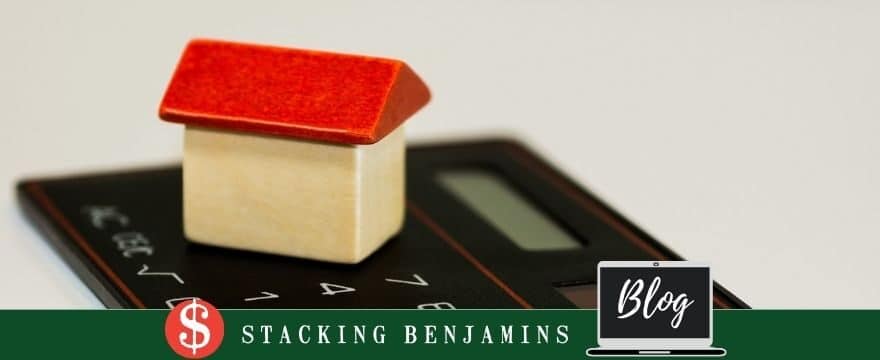Image by Towfiqu barbhuiya on Unsplash
Buying a home is a significant investment. It often takes a lot of time and money to save up for a downpayment for a house, alongside keeping up with one’s monthly mortgage payments.
Financial planning is essential to pay off one’s home, especially with rising real estate prices and mortgage rates. As of October 26, 2023, the national average mortgage rate reached 7.79 percent. These rates have been rising for seven weeks in a row.
Refinancing your mortgage might be a good option if you’re struggling with paying off your current mortgage or want to minimize your costs. Learn the pros and cons of mortgage refinancing below.
Mortgage Refinancing and Its Benefits
Mortgage refinancing refers to the process of replacing an existing mortgage with a new one, usually with more favorable terms. You take out a new loan to pay off your current mortgage. Refinance home loan rates often have better terms, which is why people prefer them at times.
Most usually go for mortgage refinancing for various reasons, such as the following:
- Lowering interest rates. One of the most common reasons to refinance is to get lower interest rates. If interest rates have dropped since you took out your first mortgage, refinancing can allow you to secure a new loan at a lower rate.
- Reducing monthly payments. You can extend the loan term or get lower interest rates when refinancing, which can reduce your monthly payments.
- Changing the loan type. Some borrowers refinance to switch from an adjustable-rate mortgage (ARM) to a fixed-rate mortgage, providing stability in their monthly payments. Others may switch from a fixed rate to an ARM to take advantage of lower initial interest rates.
- Shortening the loan term. Some homeowners refinance to switch from a 30-year mortgage to a 20-year mortgage, which can help pay off the loan more quickly. Shorter loan terms can also help save on interest rates.
- Consolidating debt. Borrowers can use refinancing to consolidate high-interest debts, such as credit card balances, into your mortgage, potentially reducing the overall interest you pay.
It’s essential to consider the costs associated with refinancing, which may include application fees, appraisal fees, closing costs, and other expenses.
Disadvantages of Mortgage Refinancing
Mortgage refinancing is a financial strategy many homeowners consider, primarily to reduce their monthly payments or secure a lower interest rate.
While there are numerous advantages to this approach, it’s equally important to be aware of the potential drawbacks that may come with mortgage refinancing. Here are some potential disadvantages of mortgage refinancing:
Closing costs
One of the most significant disadvantages of mortgage refinancing is the presence of closing costs. Just like when you first obtained your mortgage, refinancing involves various fees.
These expenses can include application fees, appraisal fees, title search fees, and other closing costs, which can add up to a significant amount. If these costs are high, they might negate the potential savings from refinancing.
It’s essential to consider these costs when refinancing your mortgage to ensure you don’t end up with a worse deal than you originally got.
Added debt
Refinancing your mortgage means taking on added debt. While you can use this debt to pay your other obligations, it can be easy to lose track of your cash flow and end up overspending.
People who see mortgage refinancing as a reprieve from their mortgage might end up taking on other loans or increasing their credit card spending. They might believe that they have more money or credit due to their debt consolidation, thus negating the progress their refinancing decision has afforded them.
Prepayment penalties
Before proceeding with a mortgage refinance, it’s crucial to review your existing mortgage agreement for any prepayment penalties. Some lenders include clauses that penalize borrowers for paying off the loan early or refinancing before a specific timeframe.
These penalties might reach significant amounts that could negate the potential savings you hoped to get through refinancing.
Impact on your credit score
The process of mortgage refinancing may impact your credit score in a few ways. First, when you apply for a new mortgage, the lender will perform a credit inquiry, which can temporarily lower your credit score.
The new loan may affect your credit profile and debt-to-income ratio. If you’re planning to make other significant financial decisions like getting a car loan, the temporary lowering of your credit score could be a concern.
Mortgage refinancing can be an intelligent financial decision, especially if you need to save on your current monthly payments or want more favorable loan terms. However, it’s essential to weigh your options and potential disadvantages carefully to ensure you don’t end up with more debt or other negative financial impacts.
If you’re unsure how to proceed, consult a financial advisor or mortgage professional to determine whether mortgage refinancing aligns with your financial resources and goals.
References:


Leave a Reply